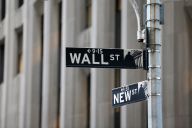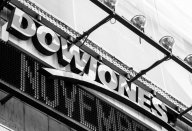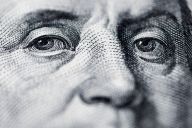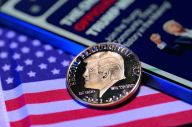Featured articles

Why Michael Burry just sold all his stocks
Michael Burry just sold over $70 million in stock, liquidating his entire portfolio except for one stock, doubling down on a company that other investors are fleeing in droves.
15:28, 18 July 2025

Euro forecast: Third-party price target
Read our EUR/USD forex rate forecast for 2025 and beyond, with insights from third-party analysts and market experts
12:06, 4 July 2025

Crypto CFDs: Popular cryptocurrencies for trading
Discover which cryptocurrencies are trending for CFD trading in 2025 – from bitcoin to newly listed coins like SUI and PEPE.
10:46, 31 July 2025

Intel stock forecast: What’s next for INTC after poor earnings?
Discover the Intel (INTC) share price forecast for 2025 and beyond, with analyst price targets and more
14 hours ago

Druckenmiller just sold all his Palantir shares
f you had invested $10,000 in Palantir just three years ago, that investment would be worth over $150,000 today. That's a staggering 1,500% return. That same $10,000 invested in Nvidia, the largest company in the world, would have turned into $81,000.
15:45, 5 September 2025

Tesla stock forecast: Third-party TSLA price target
Discover the Tesla (TSLA) share price forecast for 2025 and beyond, with third-party analysts’ price targets and more.
14:41, 5 September 2025

Bill Ackman's biggest trade ever
If you invested $10,000 in Uber exactly three years ago, it would be worth over $30,000 today. That’s more than a 300% return and nearly five times the S&P 500’s performance over the same period.
13:43, 5 September 2025

Trading the Dow 30 After a Weak NFP
The technical overview remains unchanged in both daily and weekly time frames, while in sentiment CoT speculators raised their net sell bias.
22 hours ago

US 500 index forecast: Third-party US 500 price target
Discover the US 500 (US 500) index price forecast for 2025 and beyond, with analyst price targets and more.
12:59, 5 September 2025

US Wall Street 30 index forecast: Is US30 a Good Investment?
Discover the US Wall Street 30 (Dow Jones Industrial Average) index price forecast for 2025 and beyond, with analyst price targets and more
13:08, 3 September 2025

Trading the Nasdaq 100 ahead of Jackson Hole
Rotation out of tech for two sessions in a row hits the tech-heavy index and a couple key short-term technical indicators, but both clients and CoT speculators remain majority buy.
07:20, 21 August 2025

Five factors driving gold to record highs
Major tailwinds are pushing gold to new all-time highs.
13:49, 4 September 2025

Trading gold prior to Non-Farm Payrolls
The technical overview remains volatile given the uptick in intraday price action combined with record highs, while in sentiment still a story of majority long bias among both clients and institutional traders.
07:21, 4 September 2025

Trading silver at 2011 highs
It has made quick work of the infamous $40 level to comfortably move within the handle, and it’s still a story of majority long sentiment among traders both large and small
10:04, 1 September 2025

Palladium price forecast: Third-party predictions 2025-2030
As of 21 August 2025, the palladium price stood at $1,110 an ounce – up from $909 at the start of the year, but still some distance from recent highs.
13:00, 29 August 2025

UK interest rate forecast for the next five years
Explore the UK interest rate forecast with third‑party predictions, trends, and a five‑year outlook for projected UK interest rates.
21 hours ago

Australian dollar forecast: Third-party price target
What’s next for AUD/USD? Here’s our round-up of third-party Australian dollar forecasts, with analysts’ insights, price history, and forex rate drivers for CFD traders.
19:56, 18 August 2025

US dollar forecast: Third-party data round-up
US monetary policy and global headwinds continue to sway major forex pairs – leaving many asking: what’s next for the US dollar forecast? Dive into our roundup of third-party insights and expert price predictions for 2025 and beyond.
15:44, 18 August 2025

Forex CFDs: Understanding currency forwards vs spot markets
Spot or forward? These two forex markets behave differently, and now you can trade both with us as forex CFDs. Here’s how they work, and what sets them apart.
14:48, 31 July 2025

Trump coin price prediction 2025-2050: Third-party TRUMP insights
Read our Official Trump coin price prediction for 2025 and beyond, with TRUMP insights from third-party analysts and market experts.
24 hours ago

Shiba Inu price prediction 2025-2050: Third-party SHIB insights
Read our Shiba Inu price prediction for 2025 and beyond, with SHIB insights from third-party analysts and market experts.
12:18, 5 September 2025

Bitcoin price prediction: Third-party price target
Read our Bitcoin price prediction for 2025 and beyond, with BTC insights from third-party analysts and market experts
17:19, 4 September 2025

Bonk coin price prediction 2025-2050: Third-party BONK insights
Read our Bonk coin price prediction for 2025 and beyond, with BONK insights from third-party analysts and market experts
10:20, 4 September 2025
